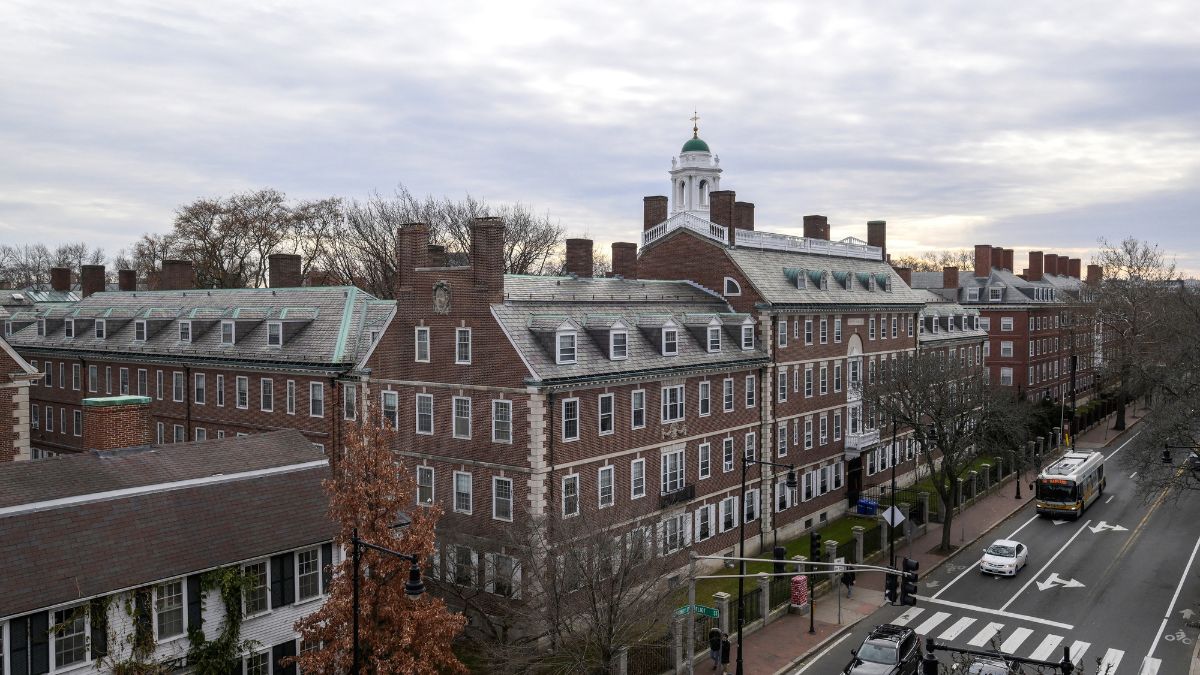Harvard University, which is in the crosshairs of the Donald Trump administration in the United States, has come under scrutiny for its ties to the Chinese Communist Party (CCP). A report has revealed that Harvard Kennedy School of the prestigious varsity has been accused of partnering with an organisation associated with Xi Jinping’s party.
The report comes at a time when Harvard University is embroiled in a dispute with the Trump administration, with the US government freezing billions of dollars in federal funds. The US president has also alleged that universities allowed antisemitism during pro-Palestinian protests on campus last year.
But does Harvard really have ties to China’s CCP? We will explain.
Harvard’s ties to CCP
A US House of Representatives committee led by Republicans has alleged that Harvard Kennedy School collaborated with an organisation linked to the Chinese Communist Party, as per The Harvard Crimson report.
A House Select Committee on the CCP started investigating Harvard University ’s alleged links to groups affiliated with China’s party in May.
In a letter to Harvard University President Alan Garber last week, the panel accused Harvard Kennedy School of training high-level Chinese government officials through a “formal partnership” with the Chinese Executive Leadership Academy Pudong (CELAP).
“Under that partnership, the rising CCP elite who are being prepared for senior Communist Party leadership positions participate in training at Harvard in the United States,” Committee chair John R Moolenaar wrote in the letter.
The committee asked the university to submit any documents linking Harvard to the CCP and furnish details of any money or benefits received from the CCP.
According to Moolenaar, whistleblowers revealed the alleged tie-up between the school and CELAP, a training institution in Shanghai’s Pudong district managed and funded by the Chinese government.
Feng Jun, executive vice president of CELAP, attended the Harvard Kennedy School’s now-defunct programme for senior Chinese officials known as “China’s Leaders in Development", calling HKS a “model” for the Chinese school, according to Harvard University’s student newspaper.
Is Harvard CCP’s ‘party school’?
Many US universities, particularly Harvard, have offered programmes to Chinese officials to study governance. A Wall Street Journal (WSJ) report in June found that thousands of mid-career and senior bureaucrats of the CCP have visited the US for executive training and postgraduate studies for decades.
Harvard University has been described by some in China as the top “party school” outside the country. “If we were to rank the Chinese Communist Party’s ‘overseas party schools,’ the one deserving top spot has to be Harvard University’s Kennedy School of Government in the US,” said a 2014 commentary published by Shanghai Observer.
Some key Chinese officials to have graduated from Harvard Kennedy School are an ex-vice president of China and a top trade negotiator.
Li Yuanchao, China’s vice president from 2013 to 2018, took part in a mid-career training programme at Harvard Kennedy School in 2002.
Liu He, a retired vice premier, has a master’s degree in public administration from Harvard Kennedy School. He was Chinese President Xi Jinping’s top trade negotiator during talks with the first Trump administration.
Li Hongzhong, currently a Politburo member and senior legislator, attended a short-term programme at Harvard in 1999.
Syracuse, Stanford, the University of Maryland and Rutgers have also offered executive training to Chinese officials, WSJ reported, citing publicity materials and other disclosures.
China began sending officials for mid-career training at Harvard Kennedy School in the 1990s. One such programme, launched in 1998, provided fellowships and executive training courses to around 20 senior officials each year.
Harvard launched another programme, “China’s Leaders in Development,” in the early 2000s, under which Chinese officials attended a training course, with their time split between Harvard and Beijing’s Tsinghua University.
As per Harvard, the now-defunct programme was to “help prepare senior local and central Chinese government officials to more effectively address the ongoing challenges of China’s national reforms."
Trump’s attempts to ban foreign students at Harvard
Amid the ongoing standoff, the Trump administration has tried to bar Harvard from enrolling international students and prevent foreigners from entering the US to study at the elite varsity. However, both efforts were temporarily blocked by a court.
Last month, the US State Department said that it launched an investigation into Harvard University’s compliance with the government-run visa programme for international students. Secretary of State Marco Rubio said that the State Department would analyse Harvard’s sponsorship eligibility under the Exchange Visitor Program certification, or J-1 visa programme, reported NBC News.
The secretary of state said in a statement that all sponsors of the programme “must comply with all regulations, including conducting their programmes in a manner that does not undermine the foreign policy objectives or compromise the national security interests of the United States.”
“The American people have the right to expect their universities to uphold national security, comply with the law, and provide safe environments for all students. The investigation will ensure that State Department programmes do not run contrary to our nation’s interests,” Rubio said.
A spokesperson for Harvard said that the Ivy League school “is committed to continuing to comply with the applicable Exchange Visitor Program regulations.”
“This investigation is yet another retaliatory step taken by the Administration in violation of Harvard’s First Amendment right. Harvard continues to enrol and sponsor international scholars, researchers, and students, and will protect its international community and support them as they apply for US visas and travel to campus this fall,” the spokesperson added.
With inputs from agencies
)